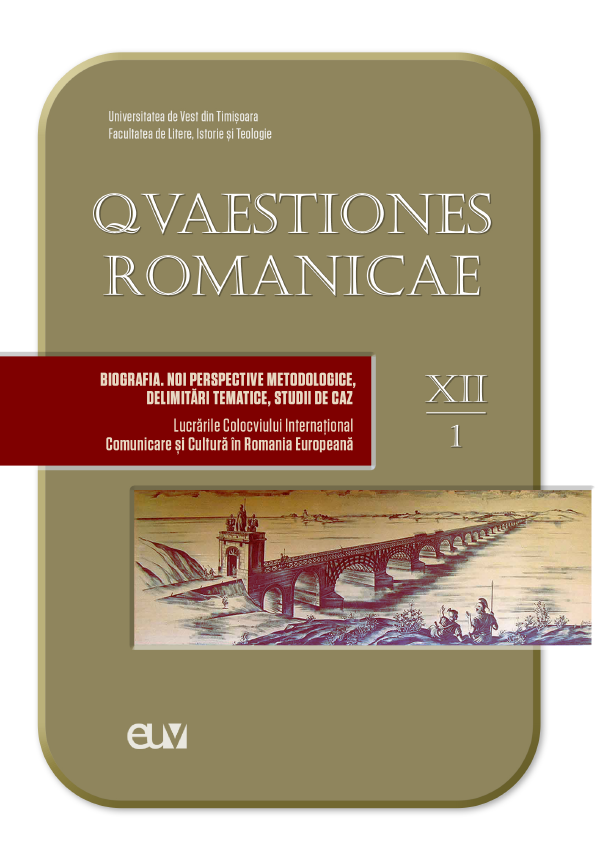Personajele Laviniei Braniște – o biografie a femeii din postcomunism?
Abstract: (Lavinia Braniște's Characters – a Biography of Post-Communist Women?) Set against the backdrop of “autofictional frames” (Schiop 2021), Lavinia Braniște’s novels offer a multifaceted “identity card” of the feminine experience in postcommunism. “Very actual and recognisable” (Coșa 2021), the facets juxtaposed in writings such as Sonia ridică mâna (2019), Interior zero (2016), Escapada (2014), Mă găsești când vrei (2021) are not quite the “indistinct flavours” of “reheated soup” (Rogozanu 2021). Accused of chaotic, unnatural representations, of unusual narrative cuttings (Burța-Cernat 2016), Braniște does not fall into mannerism, however, and the present study aims to go beyond the link with the author’s autobiography imputed to her novels and show how the fragility of femininity/female characters is not a consequence of an inconsistency at the level of narrative: the novels are precisely of a simplicity – of an almost elliptical structure – that shows the distortions and inconsistencies of a world that demolishes precisely the inner foundations of identity. Without entering into a hermeneutic tributary to the rhetoric centred on the notion of gender, we focus on the relation of the female characters to the social, even sociological dimension of the recent past, since the weak character always (re)composes a fragmented biography whose resemantizations remain insufficiently explored.
Keywords: postcommunism, Lavinia Braniște, female characters, social dimension, identity.
Rezumat: Aflate în siajul unor „cadre autoficționare” (Schiop 2021), romanele Laviniei Braniște propun o „carte de identitate” multiformă a experienței feminine în postcomunism. „Teribil de actuale și recognoscibile” (Coșa 2021), fațetele ipostaziate în scrieri precum Sonia ridică mâna (2019), Interior zero (2016), Escapada (2014), Mă găsești când vrei (2021) nu sunt chiar „aromele indistincte” de „ciorbă reîncălzită” (Rogozanu 2021). Acuzată de reprezentări haotice, nenaturale, de decupaje insolite (Burța-Cernat 2016), Braniște nu cade însă în manierism, iar studiul de față își propune să treacă dincolo de legătura cu autobiograficul imputată romanelor și să arate cum fragilitatea feminității/ a personajelor feminine nu este o consecință a unei inconsecvențe la nivelul narativului: romanele sunt tocmai de o simplitate – de o structură aproape eliptică – ce arată distorsiunile și incoerențele unei lumi care pulverizează tocmai fundamentele interioare ale identității. Fără să intrăm într-o lectură tributară retoricii axate pe noțiunea de gen, ne axăm pe raportarea personajelor feminine la dimensiunea socială, chiar sociologică a trecutului recent, căci personajul slab (re)compune mereu cioburile unei biografii ale cărei resemantizări rămân insuficient inventariate.
Cuvinte-cheie: postcomunism, Lavinia Braniște, personaje feminine, dimensiune socială, identitate.
